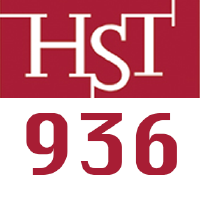2018.HST.936: Leveraging Big Data in Global Health
HST.936.2018 Course
Background
Disease has no respect for country borders. Increased global travel has fueled the spread of infectious disease, as evidenced by the Ebola and Zika virus epidemics. Chronic diseases such as diabetes and heart disease, initially confined to the developed world, now exist side-by-side with malnutrition in low and middle-income countries (LMICs). Global warming is widening the endemicity of zoonotic diseases.
One driving force that sweeps across nations even faster than disease is technology. The spread of mobile phones that bring computational power and data to our fingertips has led to new paradigms in tracking and battling disease. This course explores and designs ways to leverage technology to combat disease and promote health, especially in resource-constrained settings.
2018 Curriculum
In this 8th iteration of our course, we will explore digital disease surveillance through the lens of non-traditional data sources. Developing countries are uniquely prone to large-scale emerging infectious disease outbreaks due to disruption of ecosystems, civil unrest, and poor healthcare infrastructure – and without comprehensive surveillance, delays in outbreak identification, resource deployment, and case management can be catastrophic. In combination with context-informed analytics, students will learn how non-traditional digital disease data sources – including news media, social media, Google Trends, and Google Street View – can fill critical knowledge gaps and help inform on-the-ground decision-making when formal surveillance systems are insufficient.
For this project-based curriculum, each student will be involved in an ongoing health informatics project with global partners, such as HealthMap, Medair, Brigham and Women’s Hospital, UNFPA, and others.
Questions? email: Email: hst936faculty@mit.edu
http://www.medcatalog.harvard.edu/coursedetails.aspx?cl=&id=20710
Logistics
FRIDAYS (Classes begin February 9, 2018)
9:00 am - 11 am
Room E25-117
45 Carleton St, Cambridge, MA
Sana's Mission
Sana advances a unique multidisciplinary integrative approach to improving global health: leveraging technology to overcome resource limitations, focusing on analytics to drive evidence-based quality improvement, and an educational program for capacity building to promote locally sustained innovation.

